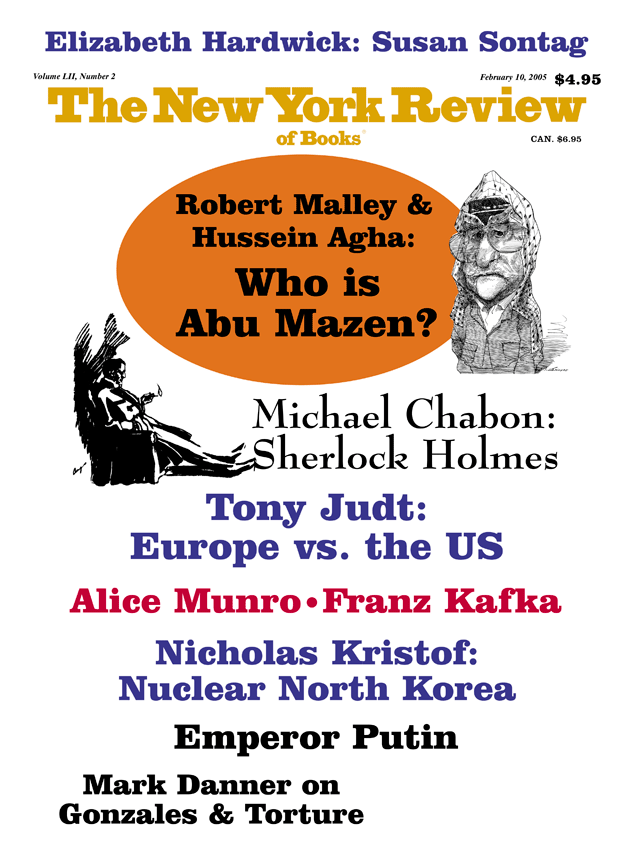To the Editors:
Max Rodenbeck [“Unloved in Arabia,” NYR, October 21, 2004] chose a clutch of books about Saudi Arabia to review which all have one theme—a distinct dislike of the Kingdom and lack of knowledge about it.
The books by Craig Unger and Dore Gold have both been totally discredited by the recent independent 9/11 Commission Report, which highlights the fact that the Kingdom does not and did not support al-Qaeda and the lengths to which the Kingdom went to prevent terrorist attacks.
There is not and never has been anything “suspicious” in the relationship between Saudi Arabia and the US. Indeed the US has bought Saudi oil—as have many other countries. The suggestion that Saudi Arabia’s oil prices and production have been manipulated to suit the US interests is ridiculous. As part of OPEC, our aim has been to maintain a stable oil price for the entire international community and for the benefit of our own community. We do not price oil to suit any one government.
More important is the human relationship that exists between the people of Saudi Arabia and the United States, which the reviewed books and the reviewer have ignored. Hundreds of thousands of Americans have happily worked in the Kingdom and equally many Saudis have studied, worked, or lived in the US. But this is not exceptional. Some more than seven million expatriates, by choice, live in Saudi Arabia from America, Asia, and other parts of the world. No one is forcing anyone to stay.
Robert Baer, Craig Unger, and Dore Gold have dangerous imaginations. None of them has visited the Kingdom and had they done so, they would probably have written very different books. The suggestion that the Al Saud family is doomed is extraordinary. It is under the Al Saud that our country has been peacefully united and developed at extraordinary speed.
One recent visitor was British television producer and writer Simon Reeve. Following his visit he produced a program about the Kingdom, examining the House of Saud. In an article in The Independent, he wrote:
I had presumed that most Saudis privately felt oppressed by their royal rulers and wanted rapid reform. But after meeting scores of Saudis—from Bedouin tribesmen to senior princes, from Osama bin Laden’s former best friend to trendy young women—I realised I had been wrong. The majority of Saudis regard the royals as the glue that holds their country together.
This review and the reviewed books do not contribute to the truth or to the desperate need for understanding between peoples and societies.
Turki Al-Faisal
Saudi Ambassador to the United Kingdom
London
Max Rodenbeck replies:
I am perplexed by the lumping of my review with some of the books that it strongly criticizes. Nowhere do I say that there is anything “suspicious” about US–Saudi ties, or that the Saudi royal family is doomed. Instead, I assert that the American–Saudi alliance has been mostly rewarding for both parties, and that whatever its flaws, the royal family has played, and still plays, a crucial role in holding the kingdom together.
Prince Turki repeats yet another point that I also made, which is that several of the authors under review have never been to Saudi Arabia. But if we take familiarity with a subject to be a criterion for passing judgment on it, I would suggest that the ambassador read my article more carefully.
This Issue
February 10, 2005


